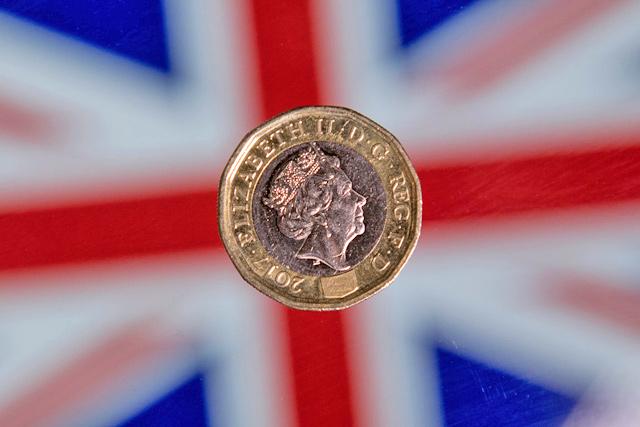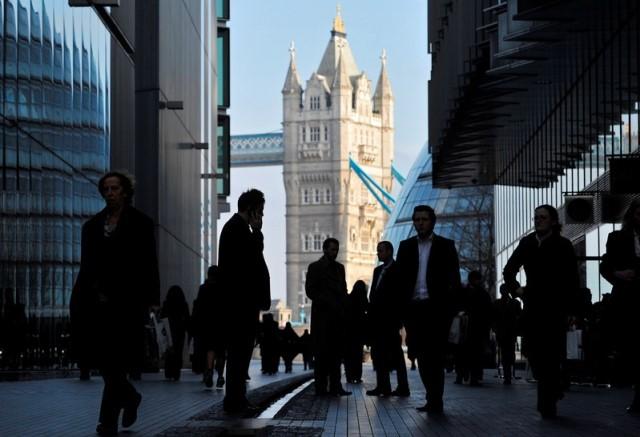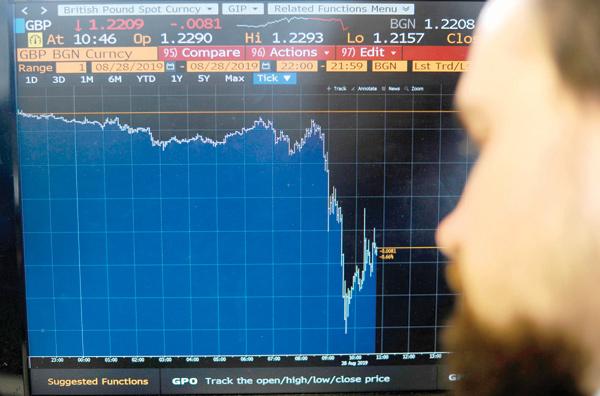You are here
Pound extends recovery amid Brexit drama
By AFP - Sep 04,2019 - Last updated at Sep 04,2019

In this photo taken on December 14, 2017, a British one pound sterling coin is arranged for a photograph in front of a union flag in London (AFP file photo)
LONDON — The pound rebounded on Wednesday, but gains were capped by investor anxiety after Brexit turmoil sent the currency tumbling and set the stage for a potential snap UK election next month.
Having dived on Tuesday to $1.1959 — the pound's weakest level since 1985 except for a 2016 "flash crash" — it has since rallied on rising hopes that Britain will not exit the European Union without a deal.
The pound shot back above $1.22 on Wednesday, an increase of 1 per cent from late Tuesday.
"Sterling was thrown a lifeline by a parliament determined to avoid a no-deal Brexit," said analyst Connor Campbell at trading firm Spreadex, but he also injected a note of caution.
"The complicating factor here, and the reason that sterling's gains... are not even greater, is the potential for a general election."
Prime Minister Boris Johnson headed into a fresh Brexit showdown in parliament on Wednesday after being dealt a stinging defeat over his promise to get Britain out of the EU at any cost next month.
The Conservative leader has threatened to seek an early general election if lawmakers vote against him again on Wednesday and force him to seek a three-month Brexit extension from Brussels.
Many economists argue that a no-deal departure would hammer the British economy, which risks already falling into recession this quarter.
British business activity shrank in August, slammed by weakness in the key construction, manufacturing and services sectors, a key survey showed Wednesday.
The purchasing managers' index (PMI) for all UK sectors dropped to 49.7 from 50.3 in July, according to IHS Markit, which compiles the data.
A figure below 50 indicates contraction.
"The PMI surveys are so far indicating a 0.1-per cent contraction of GDP in the third quarter," which would mean Britain had fallen into recession, noted Chris Williamson, chief business economist at IHS Markit.
Britain's economy unexpectedly shrank in the second quarter of the year.
The official definition of recession is two successive quarters of economic contraction.
Related Articles
LONDON — The British pound tumbled on Tuesday to the lowest level against the dollar in almost three years, as the UK faces a possible gener
LONDON- Britain’s economy came close to stagnating again in February as services companies, preparing for Brexit, cut staff at the fastest r
LONDON — The pound slumped more than one per cent versus the dollar and euro Wednesday as Britain's government moved to extend the suspensio


















